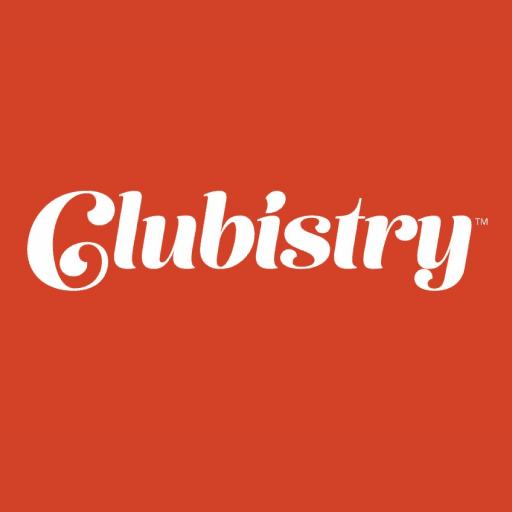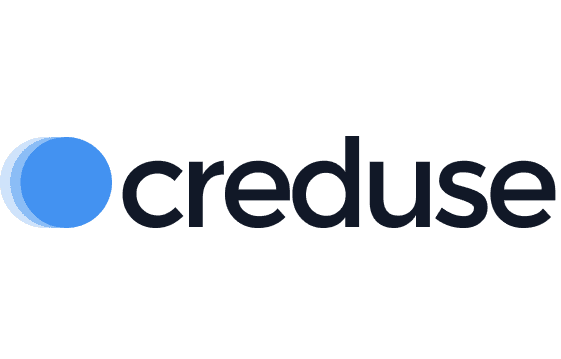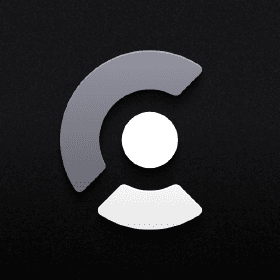Okta vs. Clerk
Okta
Okta is an identity provider for organizations. It offers enterprise solutions for managing workforce and employee identities. It's HIPAA BAA and PCI compliant.
Clerk
Clerk is a comprehensive user management and authentication platform designed to streamline how developers handle user accounts within web and mobile applications. It offers a suite of embeddable UI components—such as <SignIn/>, <SignUp/>, <UserButton/>, and <UserProfile/>—that integrate seamlessly into your application without redirecting users off-site. These components are fully customizable to match your brand, making the user experience cohesive and frictionless. Under the hood, Clerk provides a robust API and SDKs compatible with modern frameworks like Next.js, Remix, React, and Expo. It handles the entire authentication lifecycle, supporting multifactor authentication (MFA), session management, passwordless sign-in (via magic links or one-time passcodes), and traditional password-based methods with breach detection. The platform also integrates social sign-on (SSO) with over 20 providers, enabling quick user onboarding while adhering to security best practices. Clerk’s securit...
Reviews
Reviews
Reviewed on 2/25/2025
Clerk is a comprehensive authentication and user management platform. It comes with embeddable UIs, APIs and admin dashboards for user management. Clerk offers official SDKs for Next.js, React, JavaScript, Node.js, Remix, Go, Gatsby, and Ruby / Rails. There are many more community SDKs for other frameworks and languages. They have a free tier of 10,000 MAUs and a $25/month Pro tier with $0.02/MAU. Enhanced authentication, with SMS auth, device tracking and revocation, simultaneous sessions and SAML authentication costs additional $100/month. Admin add-on, with user impersonation and enhanced roles is another $100/month.
| Item | Votes | Upvote |
|---|---|---|
| No pros yet, would you like to add one? | ||
| Item | Votes | Upvote |
|---|---|---|
| No cons yet, would you like to add one? | ||
| Item | Votes | Upvote |
|---|---|---|
| No pros yet, would you like to add one? | ||
| Item | Votes | Upvote |
|---|---|---|
| No cons yet, would you like to add one? | ||
Frequently Asked Questions
Okta is well-known for its strong focus on enterprise solutions, offering comprehensive identity management for workforce and employee identities. It is HIPAA BAA and PCI compliant, making it a secure choice for enterprises needing to adhere to strict compliance standards. On the other hand, Clerk offers a broad range of SDKs and embeddable UIs, making it a versatile choice for developers. Clerk also provides a free tier for up to 10,000 MAUs, which can be appealing for startups or smaller companies. However, for enterprises with more extensive authentication needs and compliance requirements, Okta might be the better option.
Clerk offers a free tier for up to 10,000 Monthly Active Users (MAUs) and a Pro tier at $25/month with $0.02 per additional MAU, which makes it a cost-effective option for small to medium businesses. Enhanced authentication features and admin add-ons are available for an additional $100/month each. Okta, being more focused on enterprise solutions, may come with higher costs and more advanced features that small to medium businesses may not need. Therefore, Clerk can be the more cost-effective choice for smaller businesses looking for robust authentication and user management solutions.
Okta is an identity provider for organizations, offering enterprise solutions for managing workforce and employee identities. It is HIPAA BAA and PCI compliant, ensuring a high level of security and regulatory compliance.
Okta provides robust identity management services, including single sign-on (SSO), multi-factor authentication (MFA), lifecycle management, and API access management. It is designed to integrate seamlessly with various applications and services, enhancing security and user experience.
Yes, Okta is compliant with several regulatory standards, including HIPAA BAA and PCI. This ensures that it meets stringent security and privacy requirements, making it suitable for use in highly regulated industries.
Okta is commonly used across various industries, including healthcare, finance, technology, education, and government. Its compliance with regulatory standards and robust security features make it a preferred choice for organizations that require stringent identity management solutions.
Clerk is a comprehensive user management and authentication platform designed to streamline how developers handle user accounts within web and mobile applications. It offers a suite of embeddable UI components, such as <SignIn/>, <SignUp/>, <UserButton/>, and <UserProfile/>, that integrate seamlessly into applications without redirecting users off-site. Clerk also provides a robust API and SDKs compatible with modern frameworks like Next.js, Remix, React, and Expo.
Clerk includes features such as multifactor authentication (MFA), session management, passwordless sign-in, traditional password-based methods with breach detection, and social sign-on (SSO) with over 20 providers. It also offers advanced multi-tenancy features for B2B SaaS applications, allowing organization-based user management with custom roles and permissions.
Pros of Clerk include its comprehensive suite of embeddable UI components, robust API, and strong security features such as SOC 2 Type 2 certification and CCPA compliance. It also offers a free tier for up to 10,000 monthly active users, making it a scalable solution. However, some cons include the additional costs for enhanced authentication features and admin add-ons, which can add up for larger applications.
Clerk has a strong security posture that includes SOC 2 Type 2 certification and CCPA compliance. It undergoes continuous third-party audits and penetration testing. Additionally, Clerk incorporates fraud prevention measures such as disposable email blocking and machine learning-powered bot detection to reduce spam and abusive sign-ups.
Clerk offers a free tier for up to 10,000 monthly active users. For additional features, there is a Pro tier priced at $25 per month with a cost of $0.02 per additional monthly active user. Enhanced authentication features and admin add-ons are available for an additional $100 per month each.
Related Content & Alternatives
- 2
 1.Amazon Cognito
1.Amazon CognitoThe biggest advantage of Cognito is that it's a part of the AWS ecosystem and integrates well with other AWS services. The free tier comes with 50,000 MAUs and the price for each additional MAU starts at $0.0055/month and goes down to as low as $0.0025/month as you scale to tens of millions of users. It integrated with four federated identity providers - your users can sign up with Facebook, Google, Apple and Amazon.
- 1
 2.Firebase
2.FirebaseGoogle's Firebase is an entire app development platform that's packed with features.It comes with storage, cloud functions, monitoring and, of course, user authentication. The free tier comes with 50,000 MAUs. Beyond that pricing start at $0.0055/MAU and goes down to as low as $0.0025/MAU as you scale to millions of users. Firebase authentication supports email and password auth, phone auth, magic links, two-factor authentication and social identity providers - mainly Google, Google Play Games, Facebook, Apple, Microsoft, Twitter, GitHub and OAuth access tokens.
- 1
 3.Auth0 by Okta
3.Auth0 by OktaAuth0 is an identity and access management (IAM) platform designed to simplify authentication and authorization for applications. It provides a flexible solution that allows developers to implement secure login systems without having to build them from the ground up. Auth0 supports various authentication methods, including username-password credentials, social logins (like Google, Facebook, and GitHub), enterprise identity providers (such as Active Directory and SAML-based systems), and passwordless options. The platform is highly adaptable, offering over 30 software development kits (SDKs) that cater to a wide range of languages and frameworks—JavaScript, Python, .NET, iOS, Android, and more. This makes integration straightforward regardless of the tech stack. Beyond basic authentication, Auth0 offers advanced features like multi-factor authentication (MFA), single sign-on (SSO), and fine-grained authorization. These tools enable organizations to enforce complex access control policies, supporting both role-based (RBAC) and attribute-based (ABAC) models. Auth0 also addresses enterprise needs through features like user provisioning, directory synchronization, and support for B2B, B2C, and B2E use cases. It’s designed with scalability in mind, making it suitable for both startups and large enterprises. The platform’s extensibility allows developers to customize authentication flows, implement rules for conditional access, and integrate third-party services. Since its acquisition by Okta, Auth0 operates as a product unit under the Okta umbrella, complementing Okta’s broader suite of identity solutions while maintaining a developer-first focus. This combination brings together Okta’s enterprise-grade security with Auth0’s developer-centric approach, offering a comprehensive solution for modern identity challenges.
- 1
 5.Supabase
5.SupabaseSupabase is the open-source alternative to Firebase. Like Firebase, it's a complete app development platform with user authentication, cloud functions, APIs, Postgres database, storage, vector embeddings, and other features. Supabase projects come with PostgreSQL's policy engine for fine-grained user access rules. It has social login integrations with Google, Facebook, GitHub, Azure (Microsoft), Gitlab, Twitter, Discord, and many more. They offer a customizable authentication component for React. Phone login and MFA can be added through third-party SMS providers such as Twilio or Bird. The free tier comes with 50,000 monthly active users. The Pro plan, at $25/month, comes with 100,000 MAUs and $0.00325/MAU beyond that.
- 0
 6.Stytch
6.StytchStytch provides a suite of tools designed to simplify authentication, authorization, and security for web and mobile applications. If you're developing an app and need a way for users to log in—whether with passwords, passkeys, or entirely passwordless methods—Stytch offers APIs and SDKs that handle these complexities. Their focus is on making authentication seamless for both developers and end-users while ensuring high security standards. For businesses, particularly B2B SaaS companies, Stytch enables advanced features like multi-tenancy, role-based access control (RBAC), and single sign-on (SSO). They provide an embeddable admin portal, allowing enterprise customers to manage their own authentication configurations, organizational settings, and integrations with identity providers—without constant developer involvement. Stytch places a strong emphasis on scalability and flexibility. Their tools are designed to “just work” across a range of use cases, from simple consumer apps to complex enterprise platforms. Developers can choose how much of the authentication flow they want to control—using pre-built UI components for quick implementation or leveraging headless SDKs and backend APIs for a fully customized experience. Security and fraud prevention are also core to Stytch’s offering. They provide real-time bot detection, device-aware multi-factor authentication, and intelligent rate limiting to protect against credential stuffing and other forms of account abuse. Their infrastructure ensures that login codes and authentication requests are delivered reliably, even when SMS or email providers fail. Stytch supports a broad range of programming languages and frameworks, including Python, Node.js, Java, React, and iOS, making integration into existing tech stacks straightforward. Their platform is designed for developers who want to build secure, user-friendly authentication systems without reinventing the wheel.
- 0
 8.Ory
8.OryOry is an API-first identity manager. They offer authentication, analytics, access control, machine-to-machine authentication and more. They have SDKs for the major languages: - Dart - .NET - Elixir - Go - Java - JavaScript - PHP - Python - Ruby - Rust Unfortunately, they don't offer a free tier. Pricing starts at $29/month and includes 1,000 daily active users. Then it's $30 / 1,000 additional DAUs.
- 0
 9.Appwrite
9.AppwriteAppwrite is an open-source platform for building scalable applications. It comes with authentication, databases, storage, and functions. It's basically a complete development platform. They have an extremely generous free plan with 75,000 MAUs free of charge and their Pro plan is only $15/month. Appwrite offers email and password login, phone auth, magic links, email OTP, anonymous login, JWT login, SSR login, custom tokens, and two-factor authentication.
- 0
 10.Auth.js
10.Auth.jsFormerly known as NextAuth. It's is an open-source authentication library originally built for NextJS. Auth.js is free to use and comes with over 80 integrations for various third-party identity providers such as Google, Facebook, Auth0, Apple etc. You can use it with your own database if you choose to. It works with MySQL, Postgres, MSSQL and MongoDB. Auth.js is compatible with Next.js, SvelteKit and SolidStart as of March 2024.
- 0
 11.Keycloak
11.KeycloakKeycloak is an open source identity and access management solution. It supports Keycloak single-sign-on and OpenID Connect or SAML 2.0 Identity Providers (Google, Facebook, GitHub etc).
- 0
 12.Gluu Server
12.Gluu ServerGluu offers various authentication solutions based on open-source software. There is a self-hosted solution, a managed solution, and a free fully open-source solution based on the Linux Foundation Janssen Project.
- 0
 14.Lucia Auth
14.Lucia AuthLucia is an open source auth library that abstracts away the complexity of handling sessions. It works with any JS runtime - Node.js, Bun, Deno, Cloudflare Workers. It's also fully typed. It integrates with MongoDB. PostgreSQL, MySQL, SQLite, and with their respective ORMs and query builders.
- 0
 15.GoPasswordless
15.GoPasswordlessGoPasswordless is an authentication service and SDK that focuses on enabling passwordless authentication flows in web apps.
- 016.OTPLESS
Authenticate customers with WhatsApp, SMS, Email, Biometrics, and more, with a 98% conversion rate on signup and sign-in.
- 0
 1.Clubistry
1.ClubistryClubistry is the easy solution for clubs seeking to make running a club as fun as being in a club. Effortlessly handle membership management, online payments, website building, and content management in one unified platform. Promote news and events, collect user info with custom forms, and process new membership applications online in a snap.
- 2
 4.Otta
4.OttaOtta is different from the other job boards in that it only shows you jobs that fit your profile. You set your preferences, such as location (or remote-only), desired salary, tech stack, role, visa status etc. Then, you get new jobs daily, all of which are selected to match your profile and are of high quality. You also get to see the company's average response time and response rate. You can apply with Otta or on the company's website.
- 1
 1.Best SaaS Boilerplates
1.Best SaaS BoilerplatesSaaSBoilerplates.dev is a curated directory that showcases a wide range of SaaS boilerplates, starter kits, and frameworks to help developers quickly launch their SaaS projects. The website features a carefully selected collection of tools and resources that cover various aspects of SaaS development, from authentication and payments to user management and deployment. Key Features 1. Extensive collection: SaaSBoilerplates.dev offers a comprehensive selection of SaaS boilerplates, catering to different frameworks, tech stacks, and development needs. 2. Curated by hand: The boilerplates are hand-picked and reviewed by a human to ensure quality, reliability, and relevance. No scraping, no AI-generated crap. 3. Detailed information: Each boilerplate listing includes a description, pricing, and key features to help readers make informed decisions. 4. Variety of use cases: The boilerplates cover a wide range of SaaS applications, including marketplaces, AI tools, landing pages, and more. Benefits 1. Time-saving: By leveraging pre-built boilerplates, developers can significantly reduce the time and effort required to set up the foundation of their SaaS project. 2. Cost-effective: Using boilerplates can help lower development costs by providing a solid starting point and reducing the need for custom development. 3. Scalability: Many boilerplates are designed with scalability in mind, making it easier to grow and expand the SaaS application as it gains traction. 4. Reduced technical debt: By using well-tested and maintained boilerplates, developers can minimise the risk of technical debt and ensure the long-term stability of their SaaS application. By leveraging the resources available on SaaSBoilerplates.dev, users can focus on building their core product features and bringing their SaaS ideas to life faster than ever before.
- 0
 3.Creduse
3.CreduseInstant credit system integration for Apps and Games with Creduse API. Simplify credit management for your application or game with our developer-friendly API solution. Enjoy quick integration, robust scalability, and comprehensive support, plus powerful analytics to monitor user activity.
- 0
 16.BULK
16.BULK📱 Coaches and Personal Trainers: Simplify Your Business Today! Are you tired of managing clients, schedules, and payments? BULK can help you: - Effortless Session Scheduling: No more double bookings. - Instant Client Messaging: Keep all communication in one place. - Secure Payment Processing: Get paid on time, every time. - Content Integration: Easily share Google Docs, Slides, Notion, Zoom links, and more. All this from the convenience of your phone. Available on iOS and Android. Don't overcomplicate this process. Don't use systems with tons of useless features that just bog your progress! Save time, increase efficiency, and watch your business grow! 🎉 Start Your 14-Day FREE TRIAL Now! 🎉
- 0
 58.Scribbl
58.ScribblScribbl is an AI meeting assistant that transforms conversations into searchable, shareable knowledge while you focus on what matters - the conversation. With smart summaries, instant video highlights, and seamless integrations, your meetings become actionable intelligence without the busy work. Key Features - Smart Transcription & Recording: Crystal-clear transcripts and video capture without intrusive bots or complicated setup - AI-Powered Summaries: Automatically extracts key topics, decisions, and action items from every conversation - Instant Navigation: Jump to any moment using AI-enhanced video search and topic breakdown - Team Intelligence: Automated sharing rules and collections ensure insights reach the right people - Business Tool Integration: Seamlessly syncs with HubSpot, Pipedrive, Slack, and Google Drive Benefits - Time Reclaimed: Stop taking manual notes and focus fully on your conversations - Perfect Memory: Never miss a detail with searchable transcripts and smart summaries - Effortless Documentation: Meeting insights automatically flow into your CRM and team tools - Enhanced Collaboration: Keep everyone aligned with intelligent sharing and organized collections - Client Success: Streamline follow-ups and ensure every client interaction is captured and actionable Use Case Use Scribbl to automatically capture, summarize, and distribute critical meeting insights across CRM and collaboration platforms. For example, A sales team uses Scribbl to automatically document client meetings, with notes flowing directly into HubSpot and key moments shared instantly with account managers. Team leads gain visibility through automated collections, while clients receive polished follow-ups faster - all without anyone taking manual notes.
- 0
 16.Truelist
16.TruelistTruelist is a subscription-based email verification platform that provides unlimited email validation for sales and marketing lists. It’s tailored for sales and marketing professionals as well as developers, offering one-click integrations with popular platforms to simplify list imports. With no need to purchase credits, teams can validate lists affordably and efficiently. Additionally, Truelist offers free single email validation, making it versatile for both bulk and individual verifications. By keeping lists clean, it boosts engagement and strengthens sender reputation, essential for effective email outreach.

